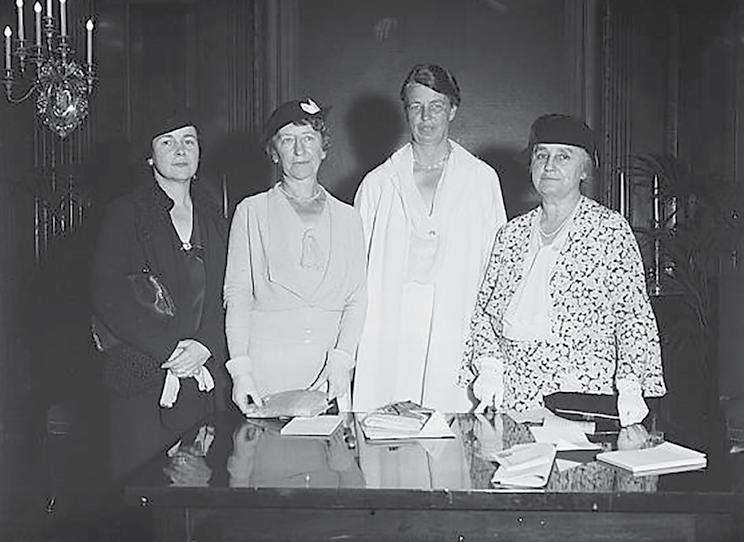
1 minute read
The Woman Yesterday
Margaret Culkin Banning (1891-1982)
By Abigail Blonigen
Margaret Culkin was born in Buffalo, Minnesota, on March 18, 1891. Her family moved to the Northland when she was young after her father — a lawyer and politician — was appointed to the Register of the Land Office in Duluth, according to Zenith City Online.
“We always had a great many books in our house, most of them standard sets, and I was an early and omnivorous reader. Anything that was in print was my meat,” she wrote for the 1960 Book of Catholic Writers. “I do not remember when I consciously began to think of writing myself, but it must have been about that time.”
Culkin graduated from Duluth Central High School in 1907. She then moved out to New York, where she had family, to study economics and creative writing at Vassar College. Her interests in writing and social problems inspired her to continue her education in Chicago, focusing on social work.

Culkin briefly returned to Duluth to work on the Duluth Social Center, which Zenith City Online describes as “a popular program that used schools as community gathering places for lectures, physical activities, and entertainment.”
In 1914, Culkin married Archibald T. Banning, whose work took the couple to England. Culkin stayed in London while her husband traveled, writing and working part time for the Red Cross, according to Catholic Writers.
The couple returned to Duluth to start a family and had four children, two of whom survived to adulthood. She and her husband eventually separated, but she continued to use his name for her writings.
In 1920, Culkin published her first novel, “The Marrying.” Over the course of her career, she published nearly 40 novels and more than 400 articles and short stories.
Culkin was an advocate for women’s rights, and her stories portrayed women in non-traditional roles, according to the Minnesota Historical Society.
“She often wrote on controversial topics for the times, such as birth control, working women, and mixed marriage,” wrote Tony Dierckins of Zenith City Online.
Her work on social issues took her to Austria and Germany after World War II, where she assisted at refugee and displaced person camps, said the Historical Society.
Culkin continued to be active in the Duluth community throughout her life and was the first woman to be inducted into the Duluth Hall of Fame. The city declared May 21, 1981, as “Margaret Culkin Banning Day.”
Her last novel was published in 1979. She was working on another when she died Jan. 4, 1982. D












